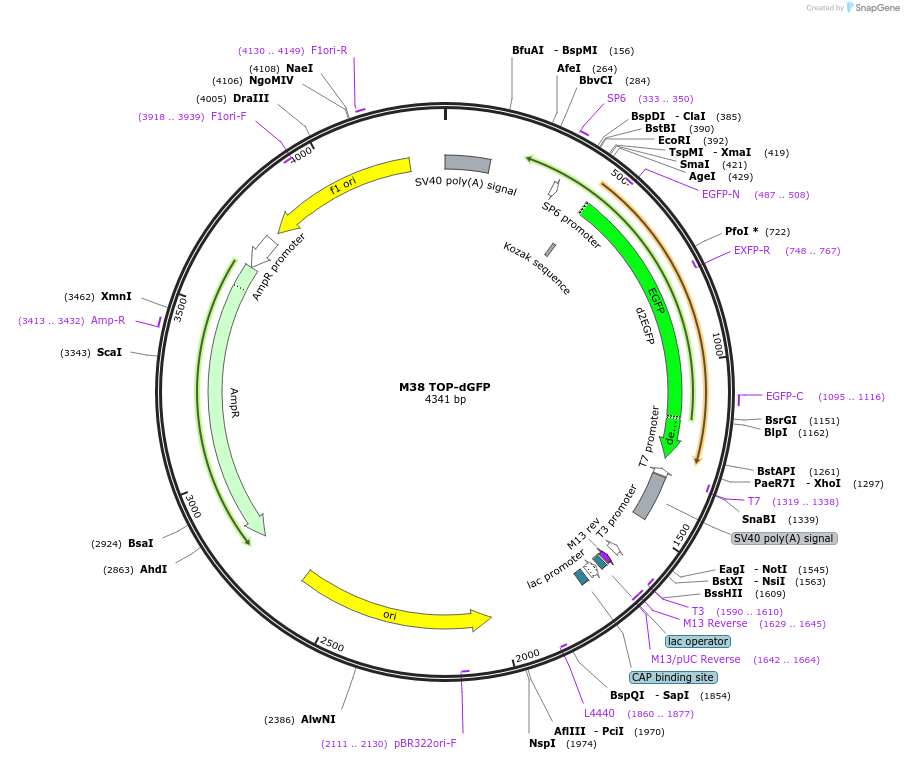-
Depositing Lab
-
Publication
-
Sequence Information
Ordering
| Item | Catalog # | Description | Quantity | Price (USD) | |
|---|---|---|---|---|---|
| Plasmid | 17114 | Standard format: Plasmid sent in bacteria as agar stab | 1 | $89 | |
Backbone
-
Vector backbonepCS2+
- Backbone size w/o insert (bp) 4000
Growth in Bacteria
-
Bacterial Resistance(s)Ampicillin, 100 μg/mL
-
Growth Temperature37°C
-
Growth Strain(s)DH5alpha
-
Copy numberUnknown
Gene/Insert
-
Gene/Insert nameTcf/Lef sites
-
Alt namebeta catenin reporter
-
Insert Size (bp)1000
-
Entrez GeneCtnnb1 (a.k.a. Bfc, Catnb, Mesc)
-
Tag
/ Fusion Protein
- GFP (C terminal on insert)
Cloning Information
- Cloning method Restriction Enzyme
- 5′ sequencing primer SP6
- 3′ sequencing primer EBV rev
- (Common Sequencing Primers)
Resource Information
-
A portion of this plasmid was derived from a plasmid made byThe promoter was from Hans Clevers' construct, TOPFLASH.
-
Articles Citing this Plasmid
Terms and Licenses
-
Academic/Nonprofit Terms
-
Industry Terms
- Not Available to Industry
Trademarks:
- Zeocin® is an InvivoGen trademark.
Depositor Comments
Description: This is a destabilized GFP under the control of a beta-catenin responsive promoter.
A 358-bp promoter/enhancer region of TOPFLASH, containing 4 consensus Lef binding sites and a minimal promoter, was amplified by PCR. The 94-bp minimal promoter is derived from the mouse cFos gene (Accession No. AF332140), starting 38 bp 5.
The full sequence provided by the depositing lab was created by piecing together various sequences, and is not exact. It should be used as a guide only.
TCF/LEF optimal sequence - cctttgatcttacc
These plasmids were created by your colleagues. Please acknowledge the Principal Investigator, cite the article in which the plasmids were described, and include Addgene in the Materials and Methods of your future publications.
-
For your Materials & Methods section:
M38 TOP-dGFP was a gift from Randall Moon (Addgene plasmid # 17114 ; http://n2t.net/addgene:17114 ; RRID:Addgene_17114)







